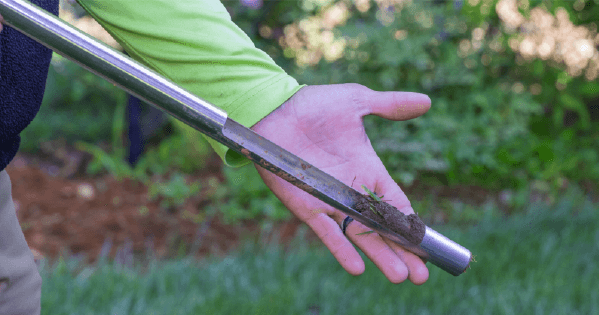Common Types of Mosquitoes in Georgia

Believe it or not, there are over 3,000 species of mosquitoes in the world, and North America is home to about 176 of those 3,000 types of mosquitoes.
According to the Department of Entomology at the University of Georgia’s College of Agriculture and Environmental Sciences, there are 63 species of mosquitoes in Georgia. That means nearly a third of the mosquito species in America can be found in Georgia!
Fortunately out of those 63 types of mosquitoes found in Georgia, only 12 of them are actually bothersome to humans.
What’s even more surprising is that most Georgians only encounter a few types of mosquitoes on a regular basis. That’s right, though it seems like there is no shortage of mosquitoes in Georgia, we are only commonly exposed to the same couple types.
However, we should still be wary of them since they can harbor diseases that spread to humans such as West Nile virus, Eastern Equine encephalitis virus, and LaCrosse virus.
In this blog, we’ll take a look at those two commonly known – and frankly unwanted – mosquitoes that we encounter in Georgia.
Asian Tiger Mosquito (Aedes albopictus)

If you’ve spent any time in Georgia during the mosquito season, then you have definitely run into one of these suckers.
Recognized by its striking black-and-white markings and known by its fierce and persistent biting, the Asian Tiger Mosquito has certainly earned its name.
Though not native to the United States, the Asian Tiger Mosquito has thrived as an invasive species in the country since the mid 1980s.
The Asian Tiger Mosquito, due to its hardiness, successfully lives in all regions of Georgia including Northern Georgia (e.g. Rome, Calhoun, Dalton, Alpharetta, Auburn, Dacula, Marietta, Bethlehem, Atlanta, Lawrenceville, Athens, Braselton, Flowery Branch, Loganville, Grayson, Monroe, etc.) as well as Southern and Coastal Georgia (e.g. Macon, Tifton, Douglas, Valdosta, Savannah, Columbus, etc.).
There are a few characteristics involving the biting and breeding habits of the Asian Tiger Mosquito that make it particularly concerning for Georgia residents.
Unlike other mosquito species, the Asian Tiger Mosquito bites during the day in addition to dawn and dusk. This increases the risk of people getting bitten and contracting diseases that the Asian Tiger Mosquito is capable of spreading.
These mosquitoes can spread Zika, West Nile virus, Dengue virus, Eastern Equine encephalitis virus, and LaCrosse virus to humans and heartworms to dogs.
Asian Tiger Mosquitoes are also resilient in that they don’t need much to breed. Known as container breeders, these mosquitoes can lay eggs in any amount of standing water. They are capable of hatching larvae in containers as small as bottle caps!
This means it’s almost impossible to address all areas around your home that might be harboring baby mosquitoes – which is why mosquito control services are the only way you can completely rid your yard of the Asian Tiger Mosquito.
Southern House Mosquito (Culex quinquefasciatus)

Though the Southern House Mosquito isn’t as popular as the Asian Tiger Mosquito, it is still very common throughout Georgia.
Because the Southern House Mosquito thrives in warm and tropical climates, the species is more prevalent and has a longer peak season in Southern and Coastal Georgia cities such as Macon, Tifton, Douglas, Valdosta, Savannah, Columbus, etc.
The Southern House Mosquito can also be found in Northern Georgia cities such as Rome, Calhoun, Dalton, Alpharetta, Auburn, Dacula, Marietta, Bethlehem, Atlanta, Lawrenceville, Athens, Braselton, Flowery Branch, Loganville, Grayson, Monroe, etc.; but not to the extent of the Asian Tiger Mosquito.
Like most mosquito species, the Southern House Mosquito prefers temperatures of 50+ degrees Fahrenheit and feeds from dusk to dawn.
The Southern House Mosquito is also capable of spreading diseases including West Nile virus, Eastern Equine encephalitis, and St. Louis Encephalitis Virus.
What is alarming about the Southern House Mosquito is that it thrives off of man-made structures. This species is known to lay large numbers of eggs in sewers, retaining ponds, storm-water catch basins, ground pools, and waste water containers.
This type of mosquito also hibernates during the winter months often residing in basements, crawl spaces, and attics as well as animal burrows, tunnels, and logs.
Since the Southern House Mosquito benefits from our structures as much as we humans do, it makes sense why they are so common. The best way to reduce their numbers is to work with a mosquito control professional to eliminate these mosquitoes altogether.
About Simply Green’s Mosquito Control Service
We offer different outdoor mosquito control treatments to help rid your yard of these pests and keep them from coming back. Our backyard mosquito control products are safe for use around pets and children, and they work quickly to get rid of mosquitoes.
To control adult mosquitoes, our product is a synthetic version of the Pyrethrum extract found in Chrysanthemum flowers. In areas of standing water in your yard, we use Bacillus thuringiensis israelensis (Bti). Bti is a naturally occurring bacterium found in soils that specifically targets and only affects mosquito larvae. Bti interrupts the mosquito lifecycle by eliminating larvae before they mature into adults. It does not affect other insects, including honeybees. All of our EPA registered products are safe for kids and pets and do not pose a risk to your family.
If you’re looking for an easy way to keep mosquitoes out of your yard, our outdoor mosquito control treatments are a great option. Contact us today to learn more about our products and how we can help you get rid of mosquitoes for good!
About Simply Green Lawn Care

Simply Green aims to provide the highest quality lawn care, mosquito control, and lawn pest control services to Georgia residents.
We are locally owned and operated which allows us to be accessible, attentive, and responsive for customers in Georgia.
Our well-trained team is easy to work with and determined to exceed expectations.
All our plant health care specialists are Georgia Department of Agriculture Certified and maintain their Category 24 applicators license.


